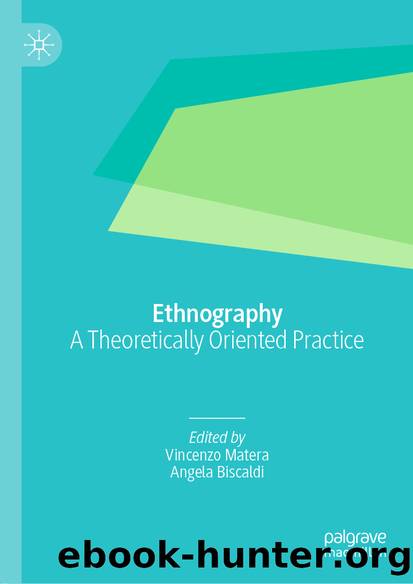Ethnography by Unknown

Author:Unknown
Language: eng
Format: epub
ISBN: 9783030517205
Publisher: Springer International Publishing
Corruption
Defined as âa mechanism through which âthe stateâ itself is discursively constitutedâ (Gupta 1995, p. 376), corruption is an essentialâalbeit inexplicably overlookedâsegment of political action, to which unsurprisingly the attention of social scientists was drawn when, on the basis of the conference held at the Wenner-Gren centre in 2016 and the trail left by the suggestive power of Trumpâs election campaign in his bid to become President of the United States, the need arose to reflect upon the multifarious and complex system of actions through which it acts. The result was a rich debate, published in a special issue of Current Anthropology (Muir and Gupta 2018) which brings together a considerable number of ethnographic studies that demonstrate how corruption is organized in a system that seems to have no borders, as widespread in the North as in the South of the world, in so-called developed countries as in what once would have been called developing countries. Despite the wide spectrum of research that is accounted for, the volume also leaves unresolved the question which, for mere convenience, we continue to call ethnographic authority.
The questions from which we start to raise the issues opened by an analysis of corruption may seem to be trivial: how can the sense of corruption be decoded in the various forms it takes on and of which mafia activity is imbued without practicing it? Without placing oneself in the meshes of the network of corruption with which modern democracies seem to cloak themselves? How can shared meanings be created from dialogical dia/logos, in contexts of corruption? Is it possible to trace precisely in the difficulty of interacting with criminal contexts the reason why corruption, of which the mafias put into practice only some possible strategies, has not particularly attracted the attention of political anthropology, either in Italy or abroad (Gupta 1995; Olivier de Sardan 1999; Miur and Gupta 2018)?
If we consider corruption as a violation of public interests by abusing official positions for private interests (Kobayashi 2006, p. 9), which in its implementation becomes a âform of structural violenceâ (Gupta 2012, p. 76) to which it is easy to be personally exposed; that citizens, in most cases, experience the relationship with the State through their daily dealings with bureaucracy; that the latter acts through officials who operate at the local level, then the suspicion that they take advantage of the position they occupy appears, following the ethnographies produced in the special issue, an expression of a fear based on real experience. An experience that anthropologists can share in the field, even more so if their research is multi-sited and allows them therefore to follow the ideal path that combines habits, customs and different skills which, being the heritage of the corrupted and the corrupting, make corruption a current and widespread transnational practice.
While effective, however, such an approach is reductive when compared to the actual scope of a practice capable of far greater intrusiveness, which expands and transcends the political party logic, to engulf even the tiniest
Download
This site does not store any files on its server. We only index and link to content provided by other sites. Please contact the content providers to delete copyright contents if any and email us, we'll remove relevant links or contents immediately.
| Anthropology | Archaeology |
| Philosophy | Politics & Government |
| Social Sciences | Sociology |
| Women's Studies |
The Leavers by Lisa Ko(6459)
Born to Run: by Christopher McDougall(6249)
iGen by Jean M. Twenge(4693)
Sapiens by Yuval Noah Harari(4528)
The Kite Runner by Khaled Hosseini(4413)
Spare by Prince Harry The Duke of Sussex(4188)
Bullshit Jobs by David Graeber(3171)
Livewired by David Eagleman(3113)
Goodbye Paradise(2948)
Never by Ken Follett(2869)
A Dictionary of Sociology by Unknown(2516)
Harry Potter 4 - Harry Potter and The Goblet of Fire by J.K.Rowling(2413)
The Club by A.L. Brooks(2350)
People of the Earth: An Introduction to World Prehistory by Dr. Brian Fagan & Nadia Durrani(2345)
The Social Psychology of Inequality by Unknown(2304)
Machine Learning at Scale with H2O by Gregory Keys | David Whiting(2263)
Harry Potter and the Order of the Phoenix (5) by J.K. Rowling(2224)
0041152001443424520 .pdf by Unknown(2213)
Don't Sleep, There Are Snakes by Daniel L. Everett(2212)
